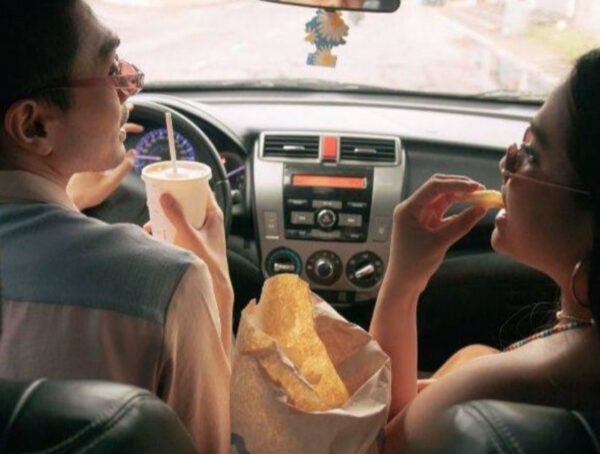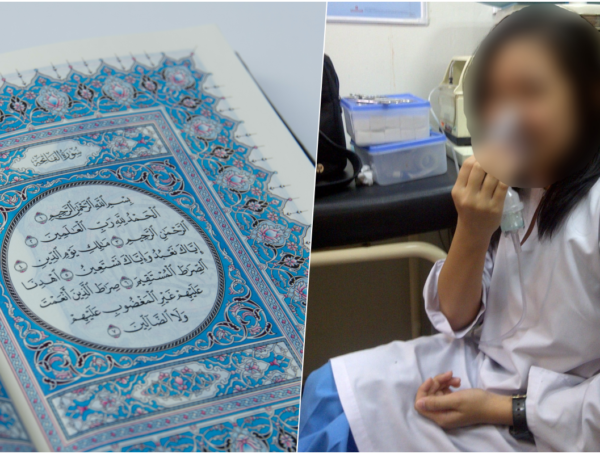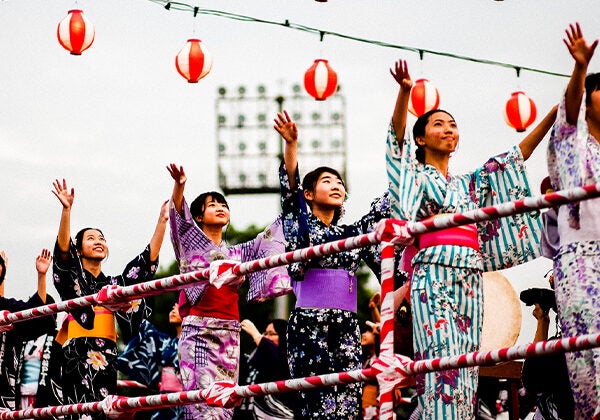Disclaimer: In Real Life is a platform for everyday people to share their experiences and voices. All articles are personal stories and do not necessarily echo In Real Life’s sentiments. The author would like to stress that she does not intend to offend believers of this religion, as this is her own personal experience.
I grew up in a deeply religious community.
I was part of a specific religious subgroup of my faith. I won’t mention it by name here.
We are often the loud minority, so a lot of people think our group represents the entire faith.
Like most of our religious brothers and sisters, we believe that all of mankind is tainted with evil and will eventually end up in hell — UNLESS we believe in the our faith’s teachings.
From a young age, I was trained to know our Holy Book like the back of my hands.
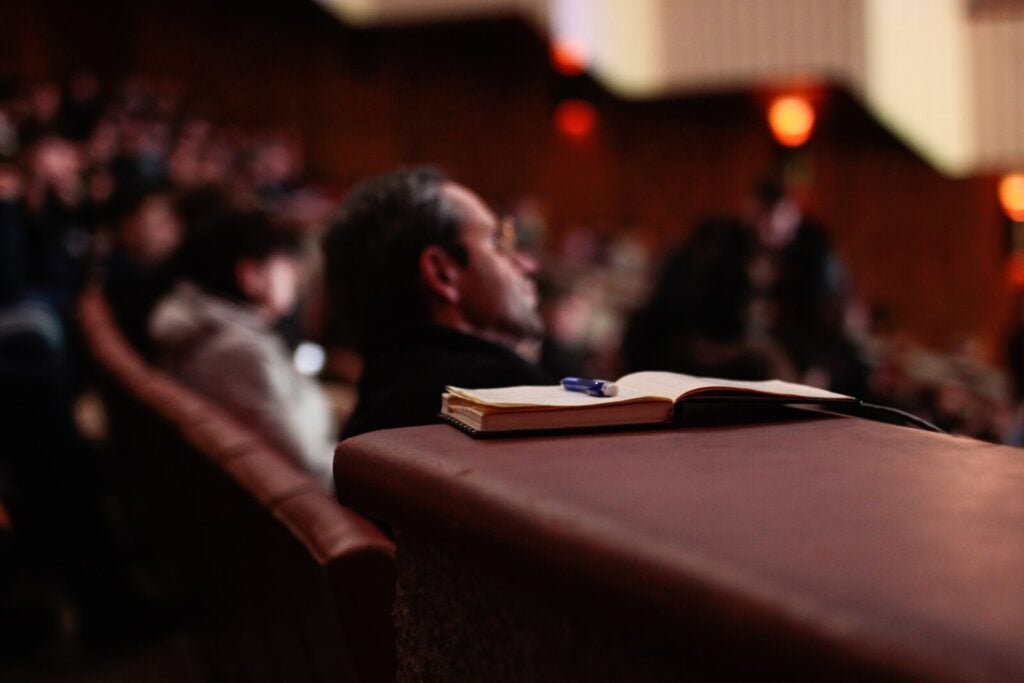
In our religious classes, the teacher would throw out a Holy Book verse, and we would thumb through our copies of the Holy Book ferociously to locate the verse. Then, I’ll grin smugly when I find the verse ahead of my peers.
I was taught how to defend our faith using our Holy knowledge.
How a typical conversation with me would go:
A curious non-believer: What happens after death?
Me, a zealous believer: You go to heaven if you believe in our religious teachings. You go to hell if you don’t.
Curious non-believer: How do you know that’s real?
Me: Because it says so here in our Holy Book: *Recites a Holy Book verse*
Curious non-believer: How do you know that the Holy Book is real?
Me: Because it says so here in our Holy Book: *Recites another Holy Book verse*
Yep, that’s how we attempted to convince people to join us.
Of course, questions were ‘encouraged’, which gave us the appearance of being open-minded.
“It’s good to ask questions,” I’ve heard countless well-meaning, yet completely ignorant, religious leaders say.
But what they actually mean is: “You may ask any question you want, as long as you arrive back at the same conclusion we did, because it’s the only conclusion that can be true.”
Now, as a 30-year-old, I realized just how illogical everything was.
When I was a kid, I attended a play about heaven and hell in my place of worship.

The play followed the lives of believers and non-believers on earth. At the end, the characters died and were sorted into heaven or hell respectively — depending on whether they had accepted our religion when they were alive.
The props, costumes, and lighting were extremely realistic. The auditorium would dim significantly as bolts of lightning flashed; the expensive sound system crackled to life with eerie laughter.
It all made a deep impression on 10-year-old me, especially when demons slithered into the scene to drag a soul to hell.
One particular scene stuck with me till today.

A mother and a daughter were in a lift.
The daughter was, for the millionth time, trying to get her mother to go to the weekly religious meetings she attended.
“Sorry, dear,” the mother said. “Not today. You know I’ve been busy. Especially with all the social work I’ve been doing for the orphans.”
Suddenly, the lift jerked to a stop. Mother and daughter struggled to steady themselves. Then, the cable broke, and the mother and daughter plunged to their death.
They eventually regained consciousness and saw an angel. The angel extended a hand to the daughter, who took it. Next, she turned around to take her mother with her but…
Demons appeared.
“NNNOOOOOOO!!!!!!” cried the daughter as she watched the demons drag her mother away to hell, kicking and screaming.
The hissing demons refused to loosen their grip on the mother, no matter how desperately she begged. She tried to reach for her daughter as the demons dragged her further and further away.
“NNNNNNNOOOOOOOOOOOOOOOOOO!!!!!” the daughter’s wailing echoed through the chilly auditorium.
That scene left young me shaking with fear.
But it also left something inside of me—let’s call it a splinter.
Why did this charitable mother who helped the needy go to hell?
Because she simply didn’t believe the right thing?
As an adult, I realised they were trying to scare people out of hell and into heaven. Believers who watched the play felt more urgency to “save” their non-believer friends and family.
This kinda thing has caused mental health problems, especially for the believer who worries unnecessarily that their family will not be with them in heaven unless they convert to this religion.
That didn’t sit right with me. And hence, this splinter was formed.
The older I got, the more splinters I accumulated.
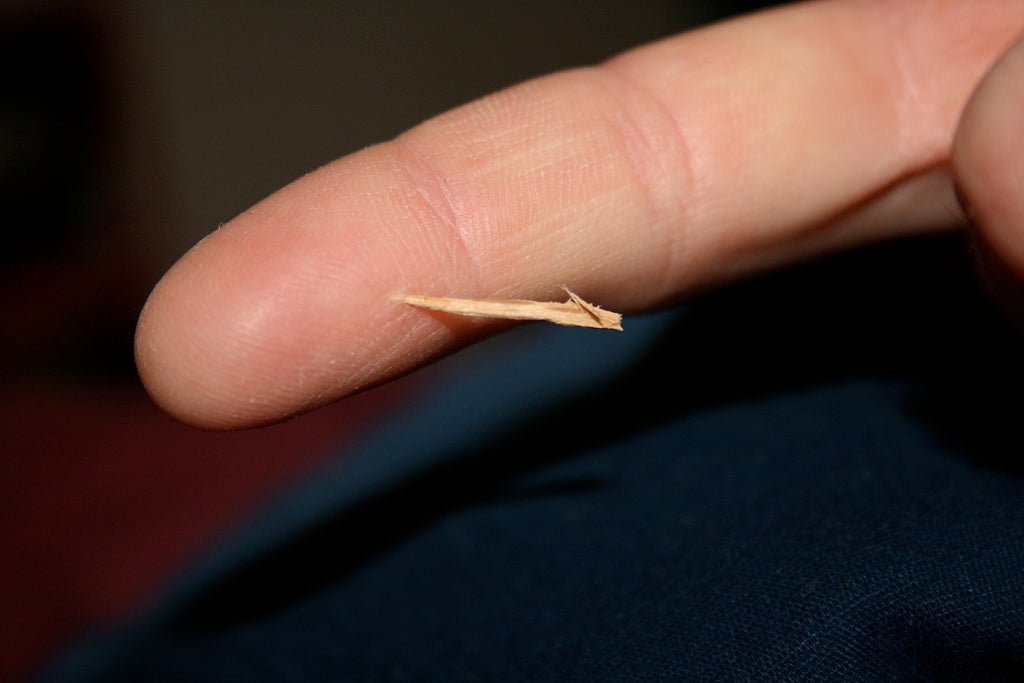
Homophobia in our religious community. Splinter.
Transphobia in our religious community. Splinter.
Misogyny in our religious community. Splinter.
Again and again, I saw broken people get pushed into dark places. And all of that was something our religious community justified with the Holy Book.
That first splinter when I was a child became one in a sea of hundreds as I reached adulthood.
When I asked questions, the answer was invariably: “You must go back to what the Holy Book says.” A different pompous face would say this each time. Apparently that book matters more than actually hurting people in real life.
The splinters wore me down, yet I clung on to this Holy Book as the answer to all things.
The origin of the universe. The solution to the problem of evil. The secret to a successful marriage. The rules of money management. Everything.
Why? Because that was what I was taught.
But one night, a thought crept into my head, like a thief in the cover of the darkness.
What if the Holy Book is actually nothing more than a human book?
The thought scared me. It was like the solid ground was crumbling beneath my feet.
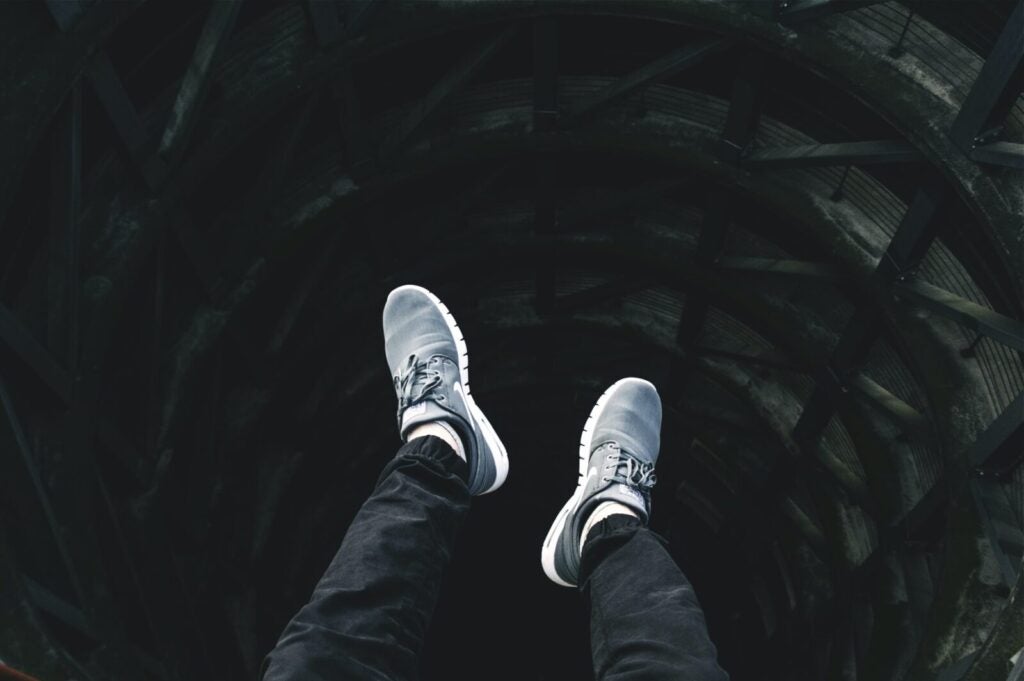
I was so terrified, I refused to go to the bathroom on my own. If there is no God looking out for me, what’s going to protect me from ghosts, life catastrophes, and other human beings?
I didn’t want to go to the bathroom alone in a world where my precious Holy Book is not true.
Eventually, I did the only thing left to do: I quit my religion.
The splinters weighed me down until I couldn’t take it anymore, so I quit.
I don’t mean merely withdrawing my attendance at my place of worship. I mean a total recall of almost every faith-related thing I’ve ever believed in.
I had no more anchor. No more compass.
I didn’t know what to make of the Holy Book anymore.
I didn’t know what to make of the world anymore.
I felt a keen sense of loss upon losing my faith.
I grieved.
It’s like grieving the death of a loved one. You go through all the five stages of grief.
For me, at first was the denial, paired with a case of sunk cost effect. Surely I couldn’t have spent so many years believing and defending the wrong thing?
Then came the anger, and this lasted the longest. I was pissed at my religious community, pissed at the teachings of the religious leaders, pissed at what I saw as being misled for many years.
I mentally divided people into two groups: narrow-minded believers or the rest of the world. (I now recognize that as harmful, because people are not a monolith like that.)
I became depressed. I had relied on my religion’s belief system for so long that not going through the motions felt disconcerting. It was like suddenly finding out that the road map I had all along was wrong, and now I’m alone in the middle of unfamiliar territory.
Losing an anchor like this, I understand when people tell me they’d rather “just believe” and live with their cognitive dissonance.
Because what entails the opposite is long stretches of sitting vacantly, being swallowed alive as you witness the meaningless suffering in the news, or the injustice everywhere you look, unable to make sense of it.
It means knotting up your running shoes and sprinting into the night in an attempt to run away that perpetual emptiness.
But finally, I found a measure of acceptance.
I found others like me and we bonded.
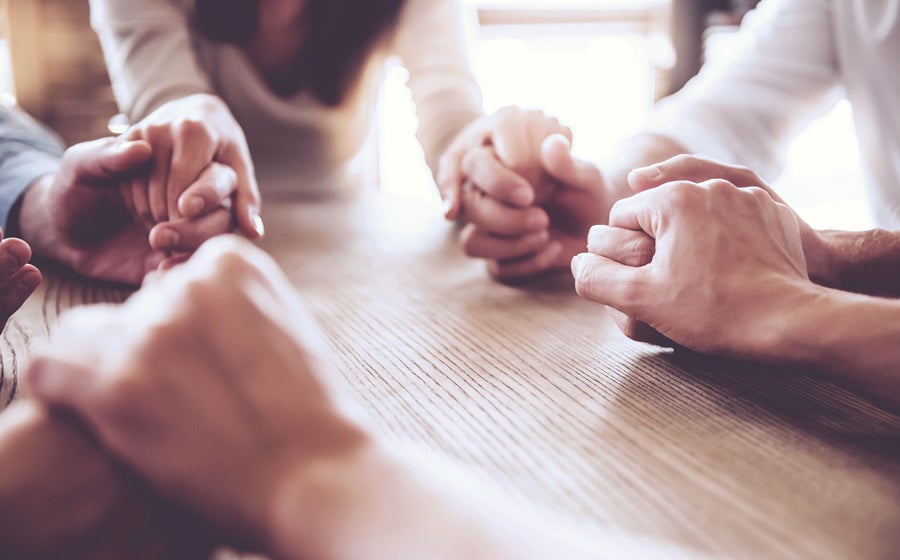
I met a friend of a friend, and she introduced me to more and more friends. People who grew up in my religious community and accumulated splinters of their own. People who share my values, and are horrified by the same things that petrify me.
We became each other’s community.
We unpacked the trauma together, and read all kinds of faith-themed books.
We are progressives, with values that might shock my religious community, but we feel very strongly about them.
These are other ex-believers. In a way, we redefined our “Religion”.
We removed the toxic ideas about the divine, but that is not to say we skimmed on spirituality. We simply just stopped subscribing to my old religion’s idea of spirituality.
We became each other’s support system.
And I finally began to heal.
I often get asked what my beliefs are now.
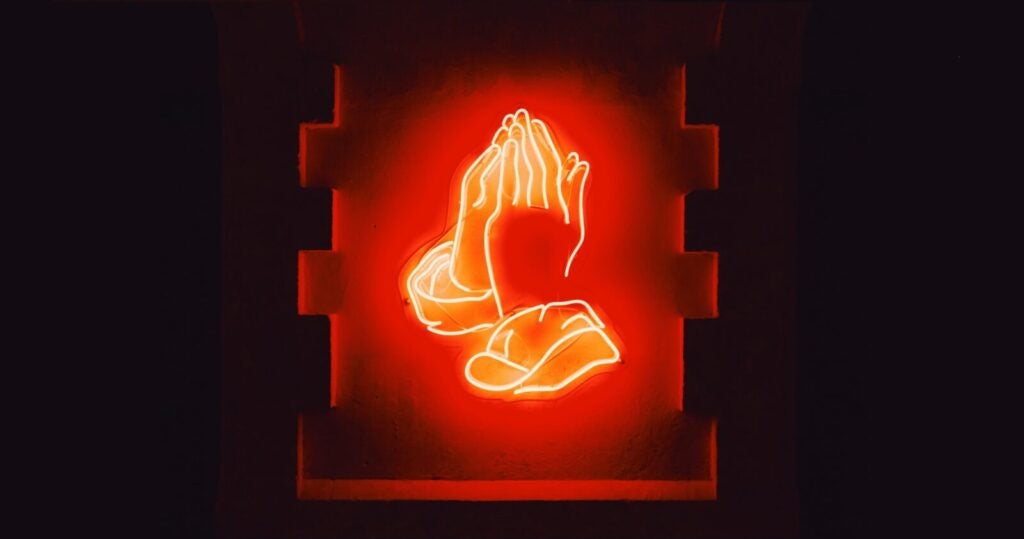
Many of my former friends who are still deep in the religion would call me a whole variety of names: backslider, lukewarm, weak in faith, doubter, bad testimony…
These same religious people are more worried about believing the ‘wrong thing’ than they are of actually doing the wrong thing.
Because, you know, belief gets you to heaven.
Clearly, they don’t know that losing one’s faith can be a very painful process. Most people don’t just wake up one day and think, “What a beautiful morning! I think today, I’ll rip away the core of my psychological make-up so I can enjoy the sensation of sinking through quicksand until the point where I’m gasping like Darth Vader without his mask.”
Now, I don’t have a creed, do-or-die. But if I must, I will say that:
- I strongly reject a literal reading of the Holy Book, and I especially reject the notion that the text in the Holy Book can only mean one thing.
- I prefer not to categorically define the divine, or any nature of the divine.
- If God does exist, I don’t believe that God would send people to hell for believing the wrong thing.
- I believe that anybody from any religion or faith can have access to the divine and live an upright life, with or without believing in the divinity of my old religion.
- I wholeheartedly believe that being gay, lesbian, or queer does not make you evil.
- I believe that every relationship dynamic is different, so there is no point in a blanket rule that the man should be the leader.
Of course, I could just try to shut off my mind and play it safe. Just believe whatever my former religious community tells me, in case they are right after all.
Pascal’s wager—better believe just in case. Worst case scenario, we’re wrong, and nothing happens after death. Best case scenario, we get to heaven!
Except, splinters don’t work that way. Faith certainly doesn’t.
And I really do not have the mental capacity to do all those mental gymnastics anymore.
This draft has been edited by Gabriel Gan with permission by the original author, Lee Chow Ping. To read the unedited story, click here.
For more stories like this, read: What Life’s Like Being Non-Religious. To get new stories from IRL, follow us on Facebook & Instagram.
You might also like
More from Real People
‘A RM100 fee cost a company 5 years of revenue’ shares M’sian
This story is about a Malaysian who learned that bureaucracy can be defeated simply by not arguing with it.A billing …
‘I quiet-quit, upskilled, and tripled my salary,’ shares M’sian engineer
This story is about a Malaysian who learned that loyalty without leverage leads nowhere in the corporate world.After years of …
‘I did everything right, and it still wasn’t enough’ shares M’sian graduate
This story is about a Malaysian graduate navigating big dreams in a job market where a degree no longer guarantees …






